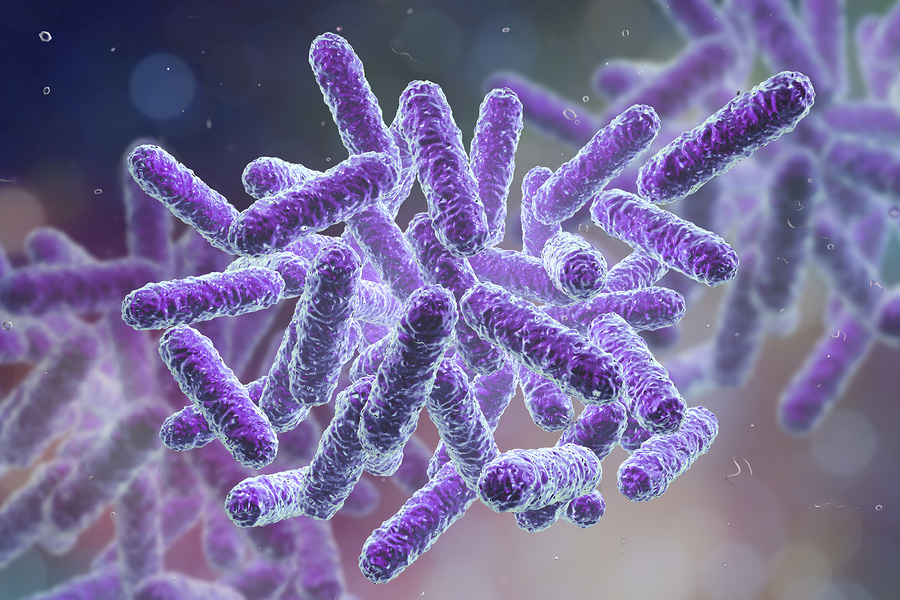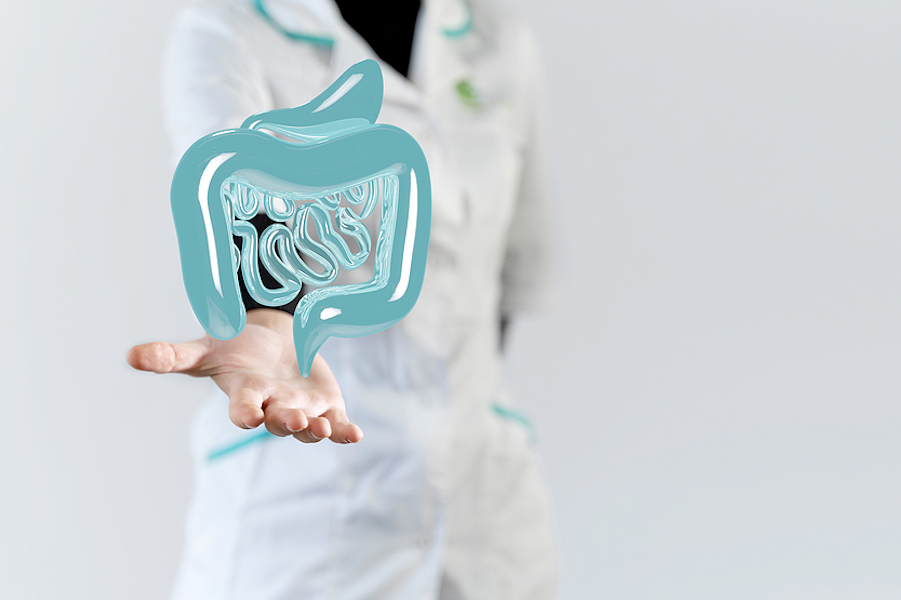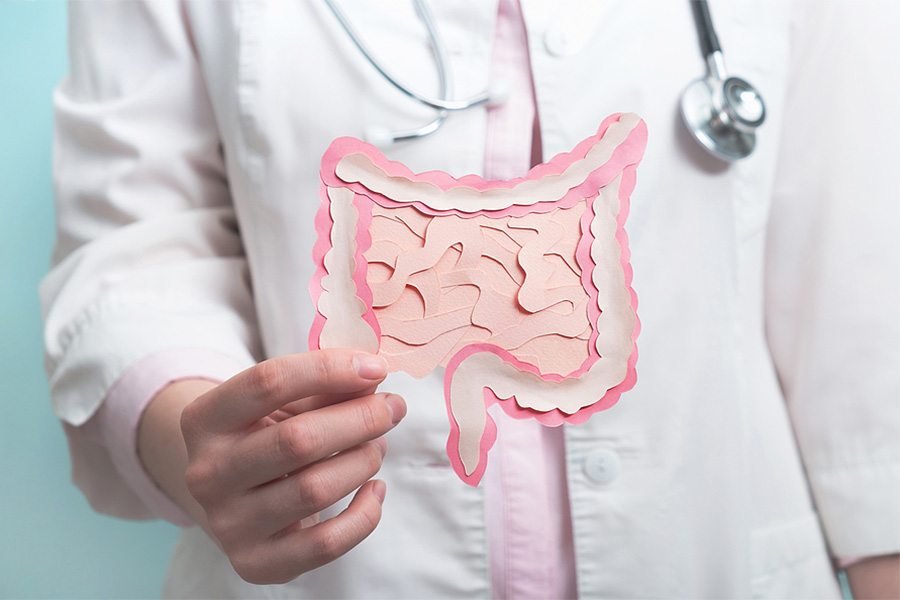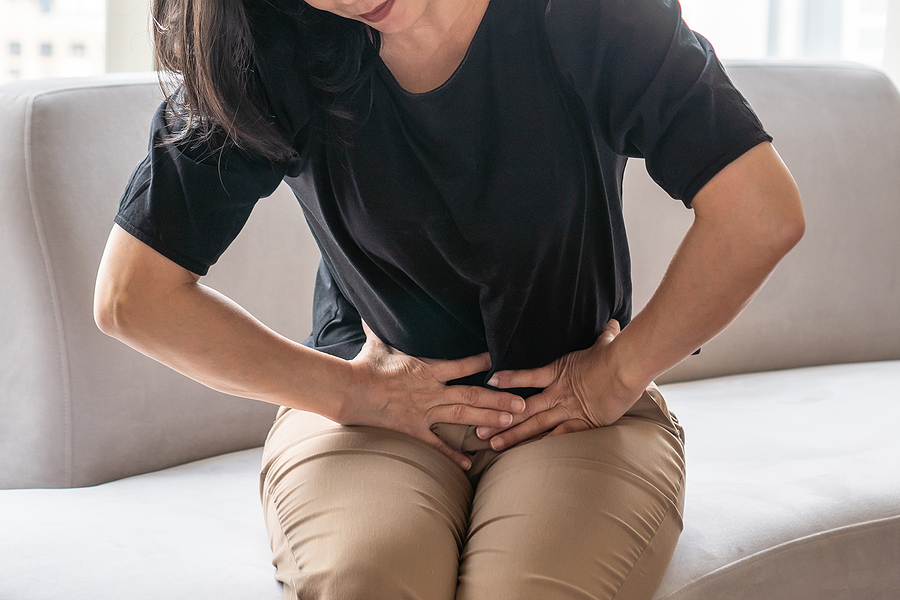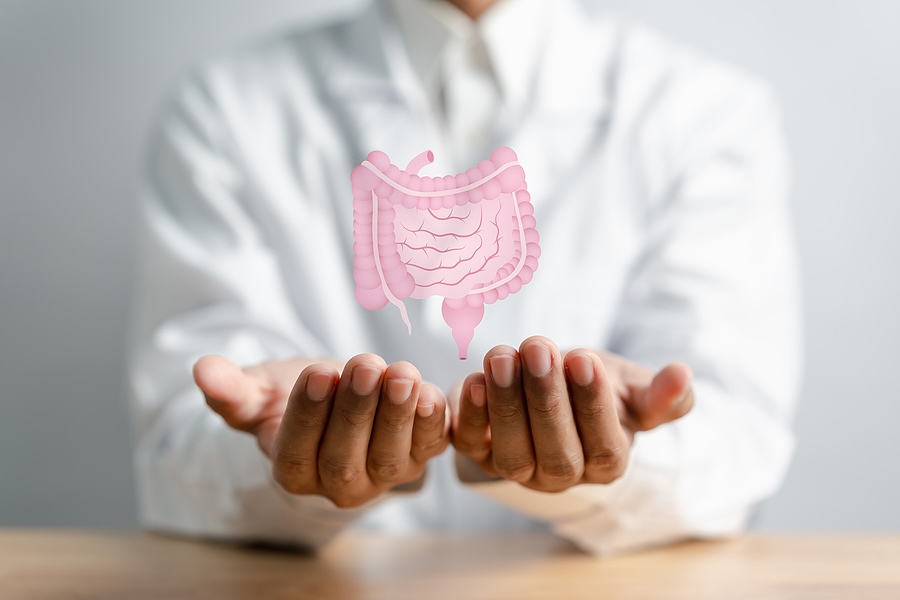Did you know that your body is made up of as many non-human cells as it is human cells? And that just 1% of the unique genes in your body are human? The rest are colonies of microbiota – tiny microorganisms, including bacteria, viruses, archaea, and fungi, that take up residence throughout the body. Though most colonize in the digestive system, others settle in the skin, oral and nasal cavities, vagina and uterus, lungs, and other parts of the body.
These microbiota, regardless of where they set up shop, are an important factor in your overall health. Many are not harmful to humans – in fact, we need them to thrive. Others, however, can wreak havoc on your health. Maintaining a healthy balance between the “good” and “bad” flora is essential.
Until recently, it was estimated that you had ten times more non-human cells than human ones. But that has changed in recent years, as new scientific knowledge becomes available. In 2014, the American Academy of Microbiology published a document that detailed recent research estimating there were actually approximately 37.2 trillion human cells, dropping that ratio to three times as many non-human than human cells.
Even newer research in 2016 suggested that, in fact, the ratio was closer to 1-1. All of these numbers are estimates, and every person is an individual. It’s certainly possible that some people have more foreign cells than human while others have approximately the same number of each. And the numbers are stagnant — so many factors are constantly changing the balance in our bodies, so at any given point in time, it could tip one way or the other.
As interesting as it is to think about the number of foreign cells we carry around, what’s more important is the understanding that we all have trillions of these microorganisms living within us, and these microbiota have great power over our health.
The Connection Between Microbiomes and Health
Throughout human evolution, our bodies have adapted to the presence of microbes. So much so that now, it would be very difficult to survive without them. We’ve developed a symbiotic relationship with these microorganisms, and they are essential to many of our bodies’ functions.
While it’s been long accepted that your exposure to microbes begins at birth, recent evidence suggests that there may even be contact while in the womb. The older you get, the more diverse your microbiome becomes – and that’s a good thing.
From the very beginning, these bacteria help your body in myriad ways. They help you process breast milk, digest fiber, manage your immune system, and play a role in developing brain health, among other things.
The “harmful” microbiota that colonize in your body can peacefully coexist with the beneficial variety without causing problems as long as proper balance is maintained. But when outside factors like poor diet, medications, unhealthy lifestyle choices and environmental toxins pile up, the microbiome can become imbalanced, resulting in what we call dysbiosis.
What’s happening in these cases is that some of the microorganisms become dominant, pushing aside others – including those that are beneficial to your health. When these beneficial bacteria die off, your health can suffer in any number of ways.
An imbalanced microbiome has been found to have direct connections to most chronic disease states. That’s why it’s so important to understand what creates these imbalances, and how you can restore balance to your body.
Let’s take a look at some of the ways that imbalances in specific microbiomes connect to your health, and then I’ll give you some ideas to restore and maintain a healthy microbiome.
Gut Imbalances
Much of the attention around microbiomes has been directed at the gut. That’s partly because nearly 70% of the microbiota in your body colonize there. Research has found direct connections between dysbiosis in the gut and intestinal disorders, brain functioning, mental health, metabolic issues, and cardiovascular disorders.
It seems somewhat obvious that an imbalanced gut microbiome would result in poor gut health. An imbalanced microbiome has been shown to impact a range of gastrointestinal disorders, including Irritable Bowel Syndrome (IBS), Inflammatory Bowel Disease, and colorectal cancer.
A less obvious, but crucial, connection is the one that exists between gut health and neurological diseases. While it used to be assumed that the blood-brain barrier allowed the brain to keep its distance from the rest of the body, current knowledge tells us otherwise. In fact, the gut-brain communication has been shown to be impact metabolic function, mood disorders, autoimmune diseases, obesity, and neurodegenerative diseases such as Parkinson’s disease, Alzheimer’s disease, multiple sclerosis, and ALS.
We still have a lot to learn about this connection. Studies that show that many people who suffer from these neurological conditions also have gastrointestinal problems, including Chron’s, ulcerative colitis, and small intestine bacterial overgrowth (SIBO) has inspired further research to help us better understand these comorbidities.
Finally, a large body of research has drawn a strong connection between gut health and cardiovascular health. A 2017 review of research published in Nutrients demonstrated how changes to the composition of the gut microbiome can contribute to the development and/or progression of cardiovascular diseases(CVD). This review found that dysbiosis contributes to the development of atherosclerosis and hypertension, two major risk factors for CVD.
Oral and Pharyngeal Dysbiosis
The microbiomes in your mouth and throat also have significant impact on health when they are out of balance. Over 700 species of bacteria colonize on your teeth and the soft tissues of your mouth. When this microbiome becomes imbalanced, the bacteria can take over, causing cavities, gingivitis and periodontitis.
Dysbiosis of the pharyngeal (throat) microbiome has been linked to higher susceptibility of both respiratory infections and sore throats.
Vaginal Microbiome and Health
For women, balance in the vaginal microbiome can be as important as maintaining proper balance in your gut. The complex system of viruses, fungi and bacteria in the female reproductive tract has an important part to play in women’s health.
Some types of lactobacilli have been found to be particularly beneficial to the vaginal microbiome, but it’s not a simple relationship. One strain may put women at higher risk for sexually transmitted diseases, but women who don’t have a dominant lactobacillus in their microbiome have a higher risk of infection and other conditions, such as bacterial vaginosis. The right balance has a lot to do with the individual.
So many things can change the vaginal microbiome, including sexual activity, lubricants, contraceptives, menstruation, antibiotics, and the aging process. That’s why it can be tricky to keep the balance required for good vaginal health. Overgrowth of the fungus, candida, is one of the most common problems for women with an imbalanced vaginal microbiome.
There is evidence that after a woman becomes pregnant, pathogens in the vaginal microbiome can cause miscarriage or adversely impact the baby. The link between the vaginal microbiome and infertility isn’t clear, but women with pelvic inflammatory disease (which has been linked to the vaginal microbiome) have an increased risk of becoming infertile.
Maintaining a Healthy Microbiome
Since the largest colonization of microbiota occurs in your gut, it makes sense that maintaining a healthy gut microbiome can boost overall health. The connections between each of the microbiomes in your body may not be well understood, but I have no doubt that good health in the largest microbiome in your body can promote good health in the others. Here are some ways to help you balance your gut and keep you feeling great.
- Eat a wide range of healthy foods. Diversity in your diet is essential to a balanced microbiome. Be sure to branch out and try new things, rather than eating the same foods every day. Legumes, beans and fruit are high in fiber, which can promote the growth of a “healthy bacteria,” bifidobacteria.
- Eat prebiotic foods. Prebiotics “feed” the healthy bacteria in your gut. Great sources of prebiotics include bananas, asparagus, apples, oats and artichokes.
- Choose whole grains. Because fiber is so important to the growth of beneficial flora, high fiber whole grains can be very good for maintaining balance.
- Try fermented foods. Fermented foods are trendy, so they’re easy to find these days, and that’s a great thing! They contain high levels of healthy bacteria to help restore or maintain balance. There are plenty of fermented options, including yogurt, sauerkraut, miso, kombucha, and kefir, that can help reduce pathogens in your gut.
- Eat vegetarian. Plant based diets have been shown to reduce inflammation in the gut and promote healthy balance. And some plant compounds, called polyphenols, are especially good at encouraging of healthy bacteria. Foods high in polyphenols include red wine, green tea, dark chocolate and olive oil.
- Supplement as needed. Because it’s so easy for the microbiome to become imbalanced, I suggest taking a high quality daily probiotic supplement. These contain live bacteria to help level out the ratios of “good” to “bad” bacteria in your gut. Not all probiotics are created equal, so be sure to do your research!
- Avoid antibiotics. Sometimes, an antibiotic is the only solution. But these days, they are so easily prescribed that people are taking them for everything. And antibiotics kill both good and bad bacteria, which can create an even more serious imbalance. An antibiotic won’t cure a virus, but overuse might just make the bacteria it’s intended to kill resistant, meaning it won’t work even when you do need it.
Pay Close Attention to Your Microbiome – Your Health Depends On It!
It may be startling at first to realize how many foreign microorganisms are living inside your body, but there’s no need for alarm. Many of these microbiota help you flourish when proper balance is maintained. It’s up to you to notice signs of dysbiosis and take steps to address it before your health suffers. Prevention is so much better than needing treatment! It’s all about balance – in your diet, lifestyle AND your microbiome.
Resources:
https://www.nature.com/articles/sj.bdj.2016.865
https://www.healthline.com/nutrition/gut-microbiome-and-health#section4

